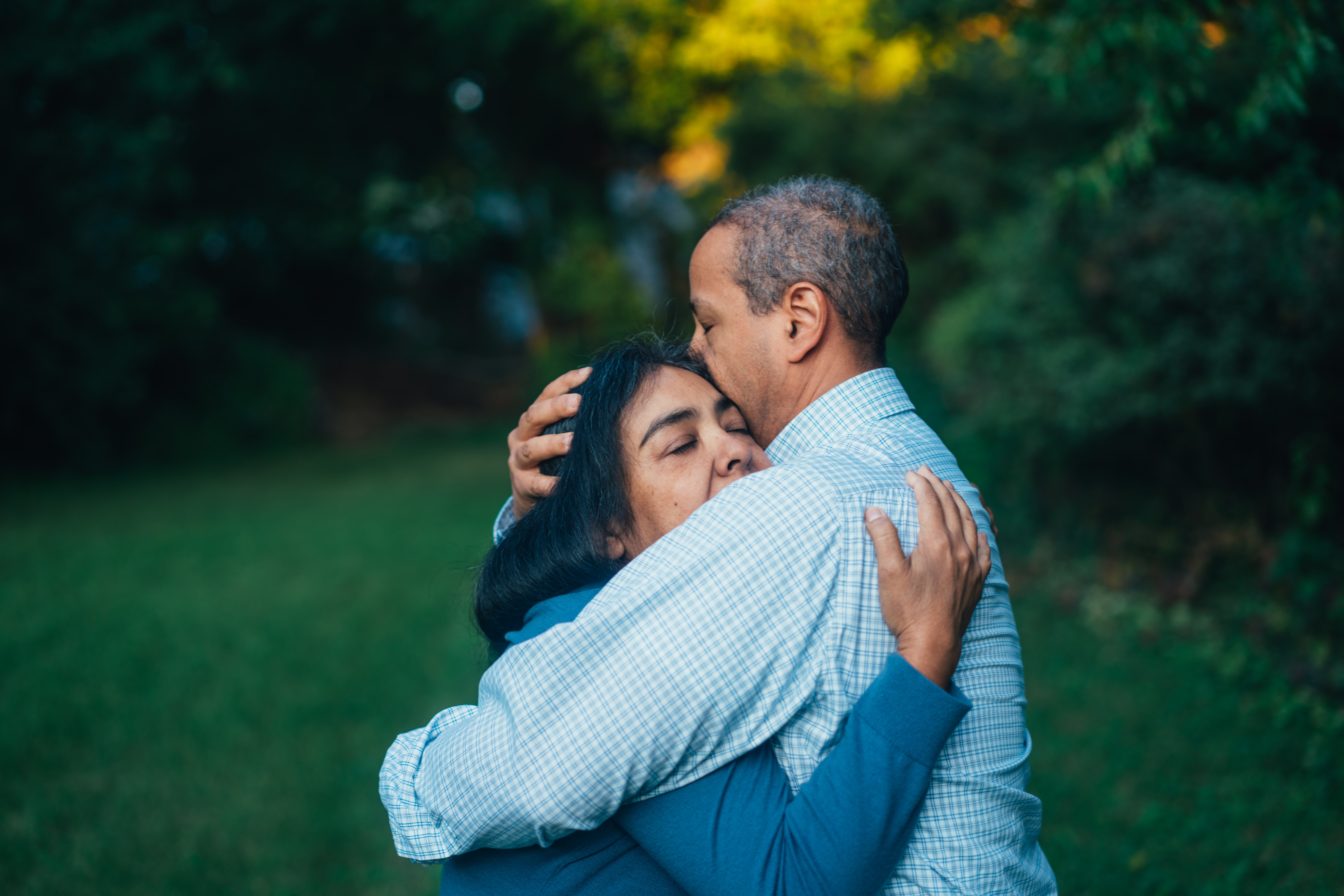There’s a hidden pitfall inherent in every relationship.
The quality of your relationships is a major contributor to the overall happiness you feel in life. Great relationships take time and effort, and it’s natural for a relationship to change over time. What once attracted you to your significant other can even become an annoying habit over time! Navigating the normal ups and downs of a relationship can be difficult, to be sure, but there’s a hidden relationship saboteur we all experience, yet often tend to ignore.
When you add trauma to the mix, it can seem as if your key relationships are set up for failure no matter how hard you try. Many couples fail to consider the hidden impact of trauma on their relationships and are left wondering what’s generating such turmoil in a once peaceful relationship. Is trauma to blame?
Physicians use the word “trauma” to describe a serious injury to the physical body resulting from a sudden impact, such as an accident or a violent act. But you can also suffer emotional trauma, which can cause an equally painful wound to your sense of self as a whole, coherent being. Just like a wound to your physical body, emotional injuries also require care and attention so that you may heal.
When this trauma is left unresolved and your experience of yourself is one of not being whole—of somehow being broken—you are likely to bring the footprints of this to your relationships. To have healthy relationships, you must first have a healthy sense of your own being and place in the world.
Let’s take a brief look at trauma, its origins and symptoms, and then how this may affect your relationships.
Origins and Effects of Emotional Trauma
Emotional injuries result from any experience in which one feels that his or her life or well-being is endangered. These experiences might include the shaming of a young person by a parent or teacher, the molestation or beating of a child, the loss of a job or a divorce, a sudden death or life-changing accident, or being sent to war.
Whether the trauma occurred in childhood or adulthood, it changes your experience of yourself and your world. If you were young when the trauma occurred, you will likely have more scars, because you were more vulnerable and had fewer coping skills.
Our human instinct is to protect ourselves and we do that, often, by finding ways to cut ourselves off, through denial that we have been hurt, dissociation from the painful event, or repression of the memory of the trauma. The symptoms of unresolved trauma may include, among many others, addictive behaviours, an inability to deal with conflict, anxiety, confusion, depression or an innate belief that we have no value.
The Impact on Relationships
Living with unresolved wounds and bringing all the resulting behaviours, to your relationships is clearly not conducive to healthy, happy intimacy.
When your emotional health has been compromised and you soldier on through life, “sucking it up,” without resolving the trauma that has occurred, the wounds will continue to fester, primarily in how you perceive and treat yourself—and then spilling into your relationships with significant others.
When the trauma remains unresolved, there will likely be frequent triggers that cause an emotional response—behaviours on the part of others that unintentionally act as cues or reminders of the original trauma. For example, if you had parents who were emotionally distant or physically absent when you were a child and you felt abandoned, when your spouse comes home late from work you may feel powerless and rejected.
Your spouse (or your friend, relative, partner or colleague) may have only your highest good in mind, but when you see life through your scars, you experience attacks where none are intended. Likewise, when you see yourself as unworthy, you may not effectively express and preserve your worth in relationships.
The unresolved trauma is the filter through which you see the world and all your relationships.
Resolving the Unresolved
If you have unresolved trauma in your life, you are certainly not alone. Here are some ways you can personally begin to address and heal the trauma and change the effect it has upon your life and relationships:
Understand trauma and its effects. Read books about recovering from trauma. Seek to see what behaviours in your life may be related to an early traumatic event, whether you remember the specifics of an event or not.
Share your story. Write about your experiences, from the past and present, in a journal. Or ask a trusted friend or counsellor to listen and bear witness as you share what happened. From telling your story, you may discover the connections between what’s happening now in your life and what you carry with you from the past.
Develop witness consciousness. Begin to notice all the thoughts and feelings that arise from the position of an observer. In your relationships, start to be aware when “this isn’t that.” Sometimes a spouse coming home late from work is just that. Notice when you are triggered and all the “self-talk” that comes along with that.
Share the trigger. When you begin to notice that you are triggered, and what you are feeling may not be the truth of the present moment, say “I feel triggered (by what you said or did).” This can be a great way of stepping outside of the emotional response, naming it, and talking about what happened without any blame.
Develop emotional resilience. As Emily Dickinson wrote: “The best way out is through.” Experience your feelings, rather than pushing them away—notice them and name them. Feel the sadness. Feel the anger. Become aware of where the feeling is in your body—in your throat? In your heart? Your emotions then can serve you as information guides moving you towards healing.
Learn new ways of self-soothing. Healing entails having the tools to soothe and comfort yourself. What soothes you? Journaling? A hot water bottle? A warm bath? Develop new self-caring behaviours. All this self-loving will spill over into your relationships.
Consider the spiritual dimension. Begin to see your life as part of a bigger picture—as a journey. It’s an empowering way to see your story in a new light and get a new perspective on the pain you’ve been through. Can you find a hidden gift in that experience: are you stronger, more alive, more compassionate as a result?
The healing of trauma, just like the healing of a broken arm, is essential to a healthy, functional life. Moving towards a healed life and realigning with your own wholeness brings you more fully into the present, making room for connection, intimacy, and freedom.
If you are ready to have assistance in dealing with your trauma talk to a therapist or Nadine has developed what she calls trauma therapy, she is focused on healing the root causes of the issues presented. It is not necessary to for you to go over your story again and again. Nadine uses a combination of alternative methods such as Neuro-Linguistic Psychology™ (NLP), Timelinked Release Therapy™(TRT), Ericksonian Hypnosis and others to assist the client in their healing process. She has found that these methodologies are the most effective, efficient and the easiest on the client. Honed over the years, her tried and true original approach to working with abuse and trauma assists her clients in healing quickly. Within weeks to months, the clients are getting on with their lives with no need to return to therapy for those traumatic events.
-
There’s no need to try to fit a specific therapeutic tool when you work with Nadine – your session is designed to fit you, not the other way around
-
Gain incredible insights into yourself, others, and how your processing styles affect your personality, relationships, and communication using The PEP Personality Process
Nadine Hanchar helps individuals and businesses build better relationships, discover new choices, new perspectives, and create success. Nadine is a result oriented counsellor, consultant, speaker, and trainer with over 35 years’ experience helping others professionally. She is a bestselling author and specializes in working with trauma, abuse, relationship issues, and communication. Learn more at ProgressivePlus.com and connect with Nadine on Facebook, LinkedIn, Twitter and Instagram


